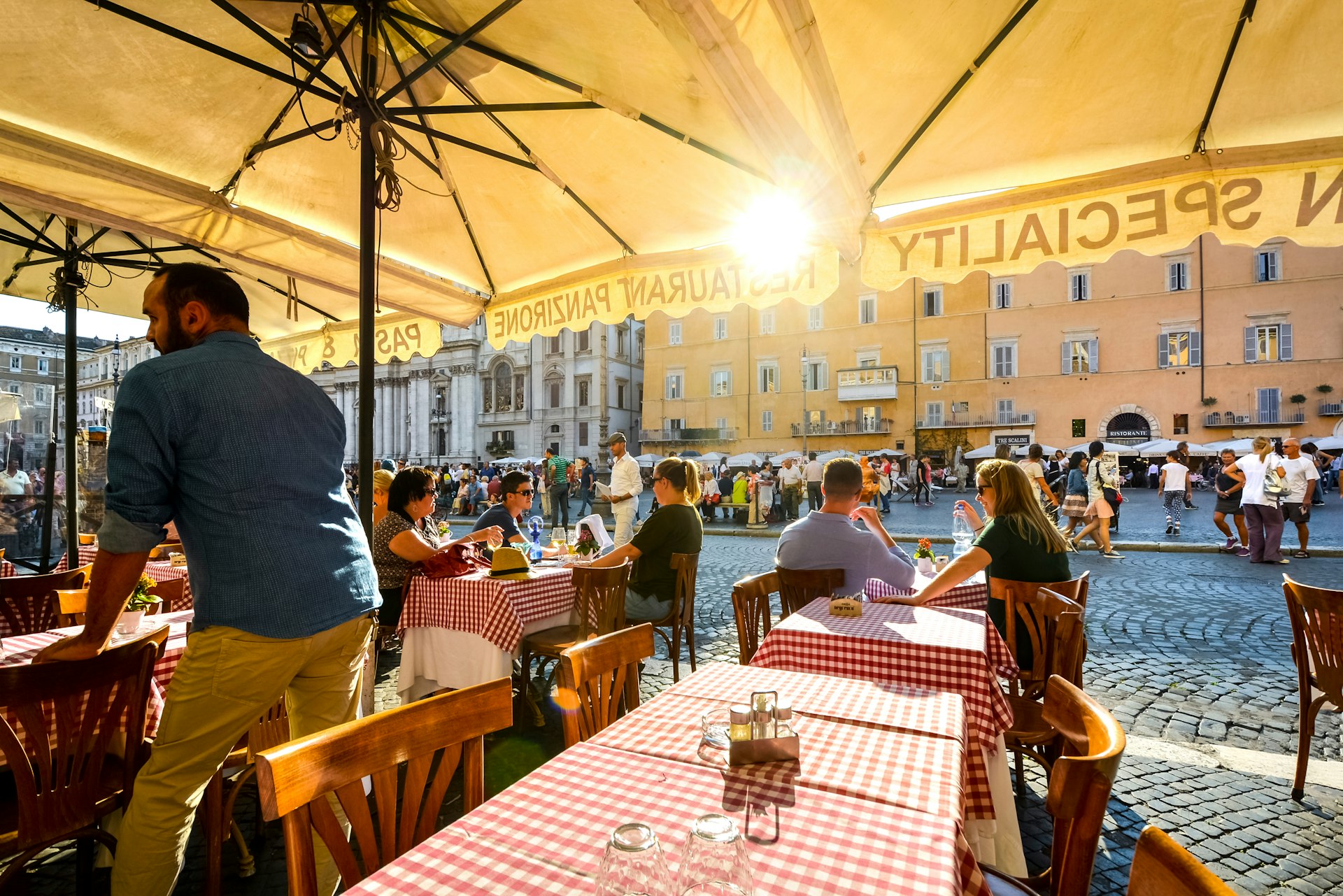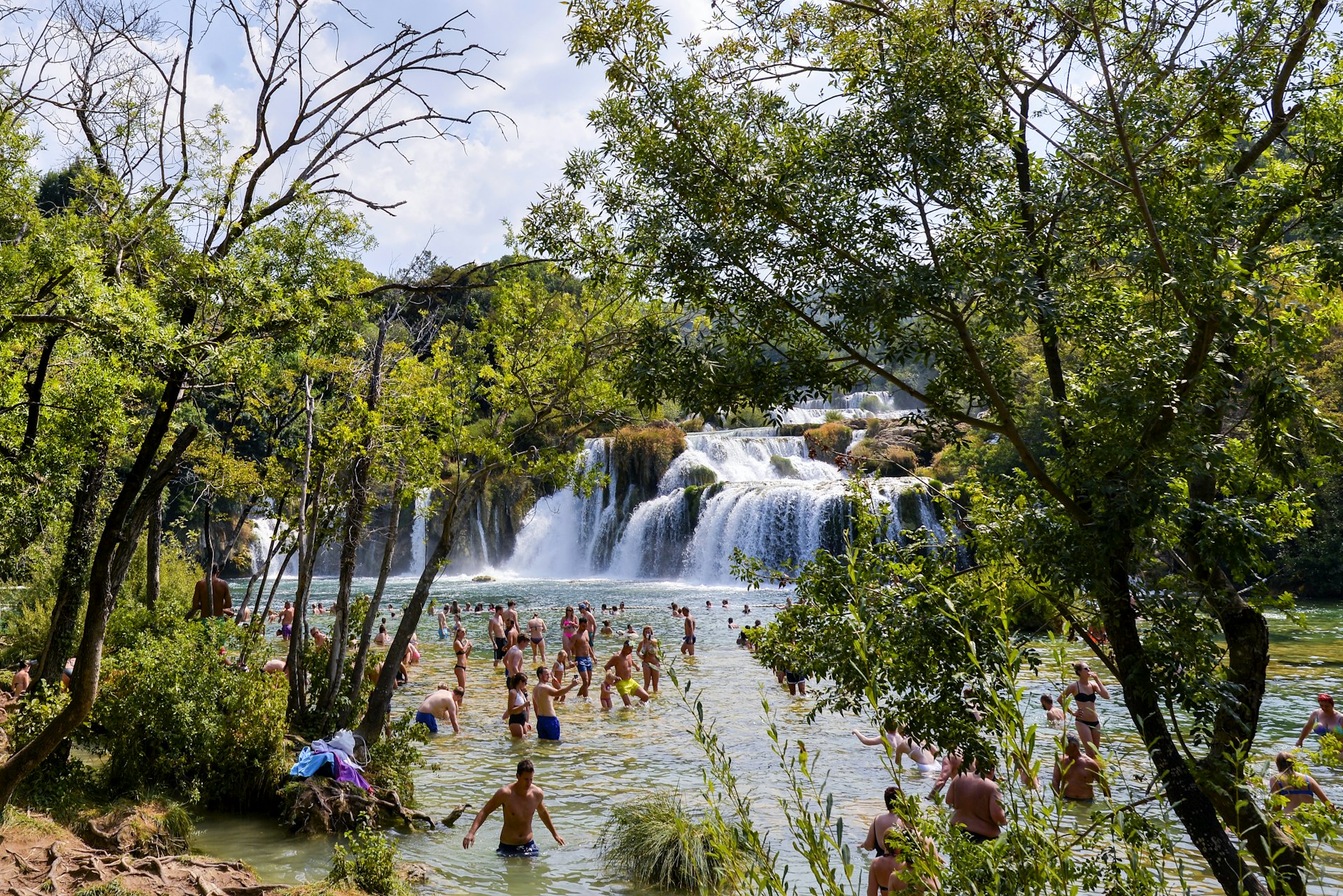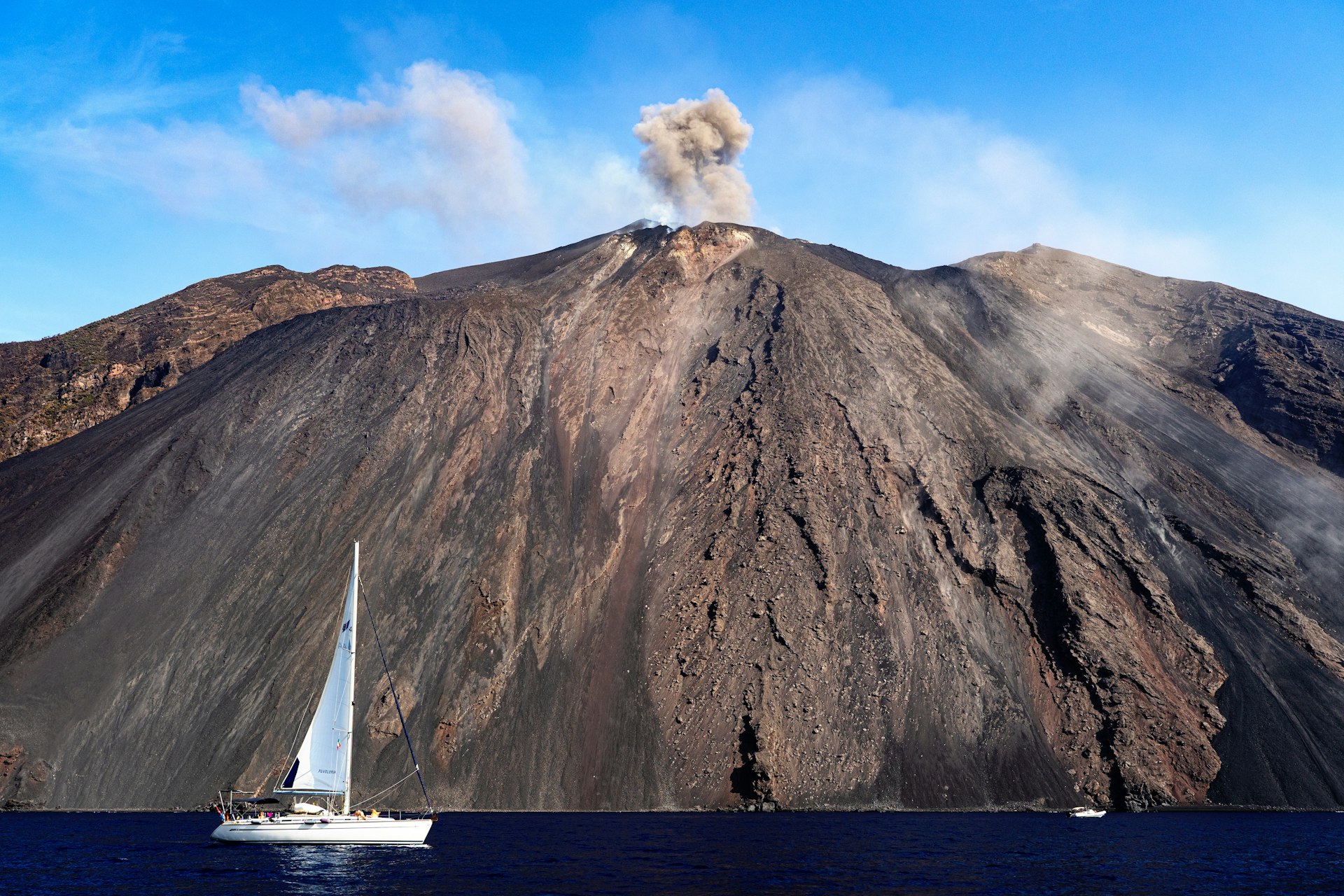If you’re planning a Mediterranean getaway, you’re spoiled for choice. Not that such a choice is ever an easy one.
And if you’re picking between a trip to timeless Italy or dazzling Croatia, the decision is all but excruciating. Which is why we’ve asked two of our most informed and ardent correspondents to lay out the case for why their pick holds the edge.
Italy is always the right idea
Our Italy expert for two decades, Nicola Williams lives a short, scenic flit through the Mont Blanc from il bel paese. She has co-authored Lonely Planet’s Italy, Sicily, Pocket Florence & Tuscany and Experience Italy guides.
It’s all too easy to dis heavily touristed grandes dames like Italy in favor of fashionably smaller, less-trodden destinations bursting with newfound “secret escapes” and “undiscovered treasures.” The world’s fifth-most-visited country, bella Italia has been a coveted destination since the dizzying days of the 18th-century Grand Tour, when young aristocrats ventured from Venice to Sicily via Florence, Rome and Naples to complete their formal education and “fall damnably in love.” Yet it’s this very familiarity, this time-tested assurance that you will have a good time no matter what, that makes grand-slam Italy so deeply appealing.
Ancient Rome’s gargantuan Colosseum, Pisa’s whimsical tower, smoldering Mt Etna, the ghostly
streets of Pompeii across which carts piled high with wine amphorae once rattled: all were world-famous icons I knew and loved well before first laying eyes on them two decades ago. Years of solo and family Italian travel since have proven that – just like the sensational stash of 24 Etruscan bronze statues pulled from the mud by archeologists during a dig in the Tuscan spa town of San Casciano dei Bagni in late 2022 – Italy never ceases to surprise and delight.
Irrespective of the season, every visit unearths a new experience or perspective. In the past 12 months alone, I have whale-watched in the Tyrrhenian Sea, ridden the wind with a kite across Stagnone lagoon, discovered the desert island immortalized in Botticelli’s masterpiece The Birth of Venus, learned to skewer lamb intestines in a Palermo street market and harvest manna in Sicily’s pristine Madonie mountains, and let my soul fly in too many medieval hilltop hamlets to count. Oh, those views!
Yes, Croatia’s naturally beautiful national parks, lakes and islands are sublime (the year we sea-kayaked around Korčula and Lastovo remains a favorite family memory). But have you ever hiked after dark from Stromboli’s black-sand beach up to its bewitching, fire-spitting crater viewpoint? Harvested capers on Salina and teeny-weeny nutty lentils on Ustica? Snorkeled gin-clear waters in Europe’s largest marine park? Lost yourself in the graceful, English-styled botanical gardens that fill an entire island in Lago Maggiore? Hand on heart: from Sardinia and the 100-plus islets of honeypot Venice to party-heavy Ponza, A-lister Capri and Sicily’s untamed Aeolians, the sheer variety alone of Italy’s seven archipelagos anchoring 450-odd islands is staggering. At the rate of four holidays a year (lucky you!), that would come to over a full century of new places to discover.
Sorry, Croatia: Italy seems to have been created with unapologetic history buffs firmly in mind. Culture buffs, too: epicenter of the Roman Empire and birthplace of the Renaissance, this European virtuoso groans under the weight of its cultural cachet. Where else outside Greece can you watch tragedy unfurl in an ancient Greek theater – then bathe in the emotionally charged presence of Michelangelo’s David and Sistine Chapel frescoes or Leonardo’s The Last Supper? Yes, this is the land of Dante, Titian and Verdi, and where Shakespeare set 13 of his 38 plays.
Trust me, history and culture lovers: the conundrum is not Croatia or Italy; rather, it is whether to commune with Romans in Pompeii, Byzantine artists in Ravenna’s sparkling basilicas, Caravaggio in Naples or the artistic brilliance of the revolutionary Giotto in Padua and Assisi. For art in three dimensions, take in the astonishing Pantheon, Milan’s pink marble Duomo and newer masterpieces by starchitect Renzo Piano. Enough said.

If culture’s not your thing, consider the legacy of the Mafia in situ, the front lines of the immigration debate, or the sorry state of ski resorts, volcanos and sinking Venice (grazie, climate change). Italy offers the experience of history in the making. And, of course, there are the three Italian Fs: food, fashion and football.
If Croats have dreamy fjaka, Italians have dolce far niente. This “sweet doing nothing” punctuates everything you do in Italy, from going off-grid in untapped Abruzzo to getting high on Neapolitan street life. You’ll feel it enjoying a seamless cappuccino in a gilded cafe, a farm-to-table lunch that lasts all day, pistachio gelato on sun-spangled sands or a perfect plate of cacio e pepe in a Roman trattoria.
Don’t bother even trying to resist. The spell is intoxicating.
Croatia is the one
Lucie Grace, a contributor to Lonely Planet’s latest guide on Croatia, fell in love with the country when she unexpectedly moved to its capital city two years ago. Since then, she has traveled the length and breadth of the country, usually on a quest to find the best slice of burek wherever she lands.
An old man in Zagreb airport once said to me, “This is the country of joy and dreams.” That quickly became my Croatia mantra.
The relatively small country is full of wonder, from the inland lakes on Mljet and travertine waterfalls in Krka National Park to architectural marvels that range from medieval to modernist. It’s a country that makes my jaw drop again and again.

On first arriving in Hrvatska (as Croatians call Croatia), I knew a few widely touted facts: the nation has a seriously great football team, hosts a passel of much-loved electronic music festivals and (of course) provided a gorgeous backdrop to Game of Thrones (at least the sunny scenes). Yet over the years I’ve uncovered a delightfully complex country, where Slavic east meets Roman west – with hints of Mediterranean and Ottoman vibes sprinkled in. Croatia will always keep you guessing.
But why choose Croatia over Italy? First off, the country is absolutely packed with amazing natural sights; the eight designated national parks, including the dazzling Plitvice Lakes, comprise a whopping 10% of the national territory. And there are over 1000 islands, a mere 44 of which are inhabited. You could visit four times a year for 11 years and always have a different holiday.
As an unapologetic history buff, I’m continually enthralled by the wildly rich history here. From the ancient Celts who built stone circles 3000 years ago to the Yugoslavia era that shaped most of the 20th century, I’m gripped by the country’s past – as I watch it stride into the newly Schengen-zoned, Euro-using future.
Next – and this one is huge for me as a solo female traveler – Croatia is incredibly safe. I bet you can’t name another country in Europe where you can leave your apartment unlocked while you pop to the shops and know everything will be fine while you’re out. Such safety makes for sublime relaxation. The Dalmatians have a special name for this particular state of bliss: fjaka, which sets in during the hot summer months and is so laid-back it’s almost meditative.
Then there’s my three B’s: beaches, buildings and burek. Croatia’s beaches are just better – and I say this as a person who has lived and worked in Italy. Simply nothing beats jumping in the Adriatic Sea from a little alcove you’ve stumbled upon in the Kvarner Gulf. The entire Croatian coast is solidly dotted with pebble beaches and turquoise waters.

Though a fair number of Croatia’s famous buildings were designed by Romans and Venetians, personally I’m all about 20th-century modernist architecture. There are concrete leviathans hidden across the exYu (ex-Yugoslavia) countries – and Croatia is home to some of the finest. I love to seek out these Spomenik (monuments), as well as the mid-century hotels, hospitals and community centers, most now abandoned. And while good food abounds in Croatia – from braised meats, stews and dumplings inland, with grilled fish dishes served up close to the coast – it’s the mildly addictive pastry snack burek that has captured my heart. You can order them with cheese, spinach or meat fillings, each a meal in itself.
Finally – and hear me out – there’s magic in the air here. Whether you believe in the ancient ley lines (or “dragon lines”) of Istria or not, you can’t deny the folklore: it’s everywhere – and not just for kids. Dotted around towns up and down the country, you’ll find murals and statues dedicated to key figures from this otherworldly side of Croatia. Friendly giants who built villages, helpful witches who created lakes…even the odd Greek god pops by to form an island or two.
There’s something utterly magnetic about Croatia’s ambience, which will keep you longing to come back.
